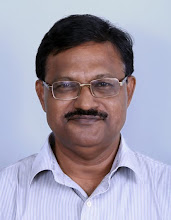O J's Corner
Unrealistic Poverty Line
In the present-day liberalised world, the norms for determination of poverty line have nothing to do with the realities of harsh living. One is considered below the realms of the poor, if his monthly income is less than Rs 356.30 in the rural areas and Rs 538.60 in the urban areas. These are the national figures for determining poverty as quoted in the Planning Commission's report of March 2007.
The figures are much lower than the internationally accepted norms. The World Bank has been highlighting a poverty threshold of one dollar a day for Asian, African and similar countries. It is woeful, indeed, that the UN poverty line was drawing inspiration from the Indian povertyline concept.
In India, the Planning Commission has been estimating the incidence of poverty in accordance with the Lakdawala Committee norms. Expenditure figures are taken from the National Sample Survey Organisation.
Poverty is measured in terms of the basic calorie intake and not basic requirement of nutrition for an individual. Satiation of hunger at the minimum level is reckoned. One must be able to buy 650 gms of grain a day. I believe even that is not possible at Rs 356.30 a month for a human being now-a-days in view of escalating prices of essential commodities. That means povertyline is essentially starvation line. Forget about a glass of milk and eggs, and nutrition.
Other basic human needs are not taken into consideration like health, shelter and clothing, let alone standards of living and access to public services.
The government norm is that an average person should consume between 2,100 and 2400 calories a day. In fact, the Indian Council of Medical Research stipulates that an adult male should consume 3,800 calories and female 2,925 calories a day for taking care of mere hunger.
The body also needs protein, fat, minerals, iron and vitamins. Many diseases afflict people on account of malnutrition, which limits development and the capacity to learn. About 50 per cent of all childhood deaths are apparently due to malnutrition.
So what is the sanctity of one being dubbed as living below the poverty line, above the poverty line? Is a person with a monthly income of Rs 360 or Rs 375 substantially better than one with a monthly income of Rs 356.30?
These figures have nothing to do with reality factors anywhere, particularly for sustenance in Kerala. The Chief Minister has pointed out that of the 3.5 crore population, 70.28 lakh people have ration cards. (In fact, all the families should have ration cards , not only for taking care of food requirements, but also as the precious document for identity). There are about 14,000 ration shops. Of the 70.28 lakh ration card holders, 49.40 lakh people have only APL(Above-the-Poverty-Line) cards. There is no subsidy for them. When open market prices were competitive, the APL card-holders did not lift the ration items. Therefore, the ration quota to the State was drastically cut. Now when the market prices started skyrocketing, APL fellows are after ration, but the State cannot provide the articles as per demand.
In Kerala, there has always been a furore about muddle of ration articles. Those who rake up such issues are not aware of the state of affairs elsewhere in the country. A majority of the powers-that-be in various States gobble up the quota. By hooks or crooks, foodgrain - rationed or otherwise- should be available, as per demand-supply persuasion. Otherwise, the prices would roar like anything.
When the globalised sectors are minting money one way or other, we should follow the Western principle of social security protection. National Rural Employment Guarantee Scheme (NREGP) providing 100 days' work at Rs 60 per day a year is simply not enough. It may be good for a beginning, but it does not satisfy norms of basic living conditions.
The growing Indian economy should take care of the job-less, income-less people through effective social security protection of the Western type. Nutrition, special care for women and children, with special reference to pregnant women, and decent living standards should devolve on the people.
Tuesday, December 18, 2007
Subscribe to:
Post Comments (Atom)


.jpg)



No comments:
Post a Comment